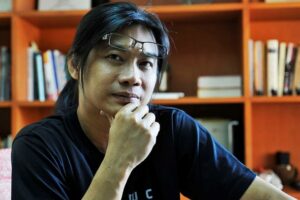With Aung San Suu Kyi on the list of cabinet nominees, there is widespread anticipation among her supporters regarding the ministerial role, or roles, she will undertake in the new government.
On Monday, Parliament approved President-elect Htin Kyaw’s proposal reducing the cabinet from 36 ministries to 21, with 18 ministers selected by the legislature and three appointed by the military.
The Irrawaddy has long predicted that if Suu Kyi were constitutionally barred from the presidency, she would take up a position in the foreign ministry.
In addition to this role, NLD insiders and the BBC Burmese service have reported that she could pursue additional cabinet positions within the ministries of energy and electric power, education and the president’s office. Some say Suu Kyi, who has claimed to be “above the president,” could become a “super minister,” or even a prime minister—a position that does not yet exist within Burma’s government structure, but could potentially be created with her in mind. With the exception of the foreign ministry role, a question remains: would she retain these positions for the duration of her term, or delegate them to other qualified persons in the future?
Under Burma’s past military regimes, the foreign minister post was deemed largely insignificant, but here it could serve as a platform for Suu Kyi to engage in fruitful dialogue, particularly with regional governments, and to receive visiting government officials who would prefer to meet with her over Htin Kyaw.
The position of foreign minister is also noteworthy as it would give Suu Kyi a seat within the powerful executive body known as the National Defense and Security Council (NDSC). The council is comprised of 11 members including the president, two vice presidents, speakers of the upper house and lower houses, the army’s commander in chief, the deputy commander in chief, the foreign minister, and the ministers for defense, home and border affairs.
As things stand, the NLD will have five key members in the NDSC including Suu Kyi, if she is confirmed as foreign minister. President-elect Htin Kyaw, Vice President-elect Henry Van Thio, and the lower and upper house speakers, Win Myint and Mahn Win Khaing Than, respectively, are all party members.
|
|
Yet the army will have a majority within the NDSC with six members. The military as an institution continues to control defense, home and border affairs ministries. Snr-Gen Min Aung Hlaing has nominated generals to lead these bodies and thereby serve on the NDSC: Lt-Gen Sein Win, Lt-Gen Kyaw Swe and Lt-Gen Ye Aung.
The military’s nomination of Rangoon Chief Minister Myint Swe as vice president—and NDSC member—stirred up controversy as he is believed to be the protégé of former dictator Snr-Gen Than Shwe’s in the new government. Myint Swe’s appointment comes just months after a supposedly cordial meeting between Suu Kyi and the former Snr-Gen Than Shwe in early December, raising more questions regarding the direction of the Lady’s relationship with army leadership.
Under outgoing President Thein Sein’s administration, former generals and army leaders controlled the NDSC – one member, Lt-Gen Ko Ko, is the current minister for home affairs as well as a notorious Burma Army loyalist. These NDSC members represented the previous military regime and have long acted without opposition.
This time, the NLD-backed president will retain ultimate executive authority in the council, but the NDSC can—with Htin Kyaw’s cooperation—collectively declare a state of emergency in Burma and then exercise legislative, executive and judiciary powers after such a declaration.
The NDSC will undoubtedly see itself splitting into two camps concerning national emergencies and other pressing issues, potentially fostering healthier debate, but more likely creating a political environment wrought with tension and resentment.


















